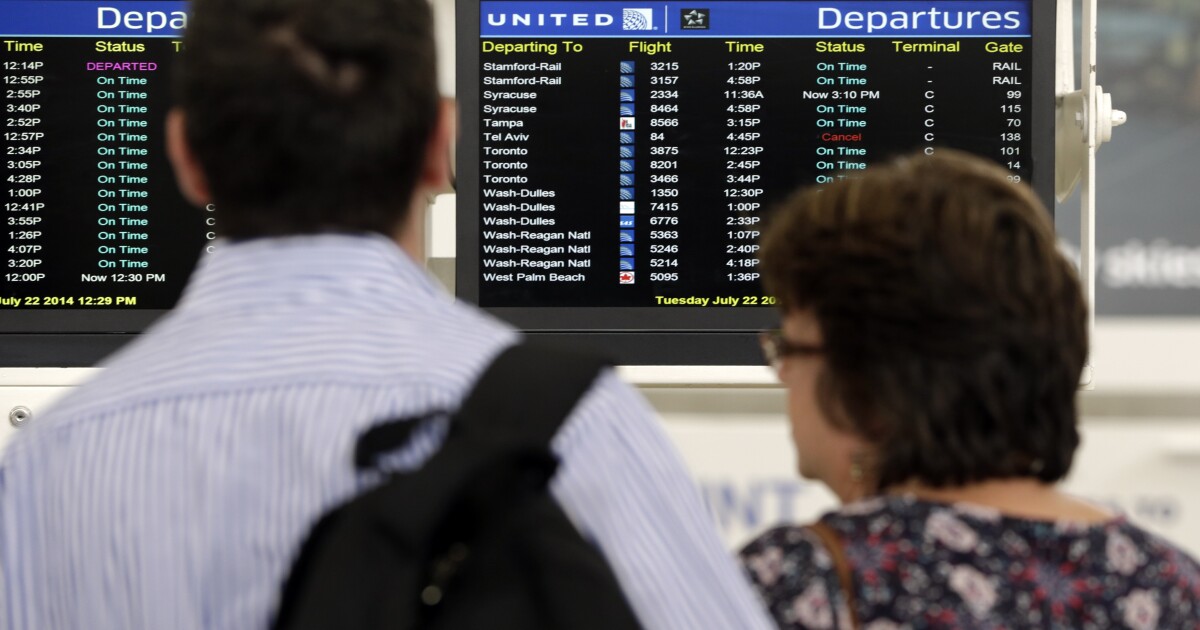

The number of flight cancellations over the last six months has already surpassed last year’s totals, positioning 2022 to become one of the worst years on record.
Thousands of flights were canceled in the days leading up to the Fourth of July holiday weekend, with airlines reporting 121,918 cancellations between Jan. 1 and the end of June — compared to 121,552 for all of 2021, according to data from FlightAware. A large portion of those was canceled over the last month, with more flights being canceled in June 2022 than any June in previous years.
FOURTH OF JULY TRAVEL ‘DISASTER’: MASS FLIGHT CANCELLATIONS AND DELAYS EXPECTED
The numbers put 2022 on track to be one of the worst nonpandemic years on record for flight cancellations since 2019, which recorded 170,632 total cancellations, according to the data. It also puts the year on track to rival that of 2020 when 298,000 flights were canceled amid the coronavirus pandemic and worldwide shutdowns. The only other year on record to have surpassed the 200,000 threshold was 2001, when thousands of flights were grounded after the 9/11 attacks.
Airlines are also being hit by an increase in flight delays, with roughly 20% of flights being delayed so far in 2022 compared to just 13.1% in the first half of 2021, data show.
The disruption to air travel has been caused by a myriad of factors, including shortages of pilots and air traffic controllers, weather complications, and airlines scheduling flights beyond their capacities.
CLICK HERE TO READ MORE FROM THE WASHINGTON EXAMINER
Understaffing and employee retention are some of the biggest problems facing the air travel industry. During the worst of the pandemic, flights became almost nonexistent, and airlines hemorrhaged hundreds of thousands of workers, some of whom never returned.
Now that airlines are working to hire and retain staff, some pilots are using the leverage to demand better pay, protections, and scheduling. Off-duty Delta Air Lines pilots at several airports protested on Thursday with demands to resume contract negotiations that were paused indefinitely during the pandemic.





